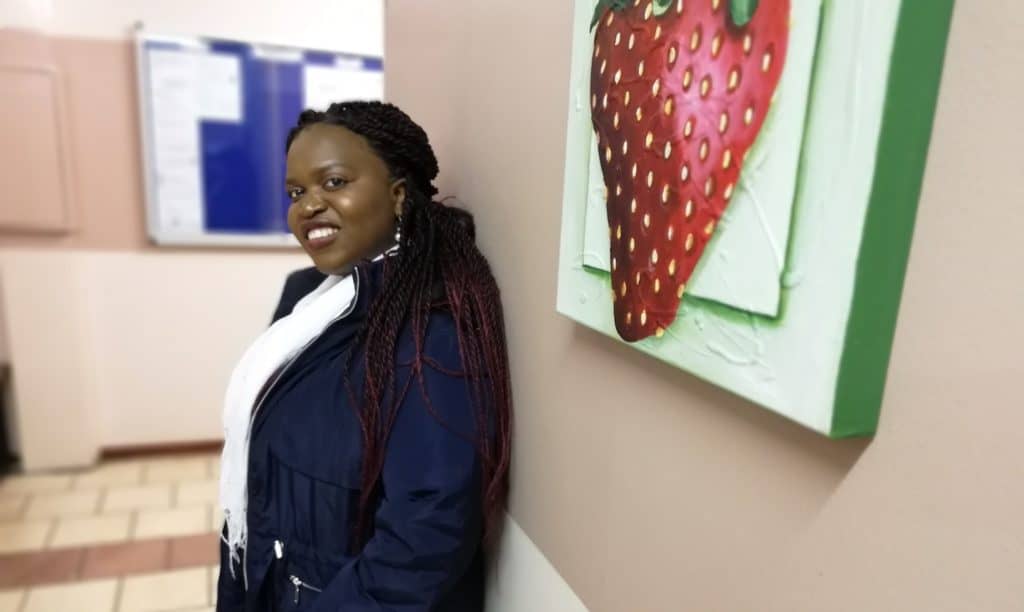It was mangoes that, by way of plant pathology, first steered Tintswalo Baloyi in the direction of food safety.

Tintswalo Baloyi has always imagined making an impact with her studies, and her work in food safety is allowing her to do just that.
Baloyi literally grew up among the beloved fruit in Tzaneen, the beautiful Limpopo town that produces 40% of the country’s mangoes and serves as headquarters for the South African Mango Growers’ Association. Her family, she tells, earned much of their living from the fruit, either selling it fresh or producing atchars from it. “My home was more mango trees than houses,” she jokes.
Baloyi’s interest in the agricultural aspect of mangoes was piqued while in her first year at the University of Pretoria (UP), where she was studying biological sciences. That year, while back home on holiday, she found that an outbreak of white insects was rendering mangoes black and inedible, ruining an entire harvest.
Intrigued, she Googled the condition. Instead she discovered not only that UP had a Department of Microbiology and Plant Pathology, but also that researchers there had conducted research on diseases afflicting mangoes. It was then that she considered pivoting into plant pathology.
That chance encounter would pay off for both her and the department. By Baloyi’s fourth year, Professor Lise Korsten – co-director of the DST-NRF Centre of Excellence in Food Security, hosted by UP and the University of the Western Cape – was looking for a student to take part in a project exploring food security in a local informal community.
Among other things, the project looked at residents’ understanding of and attitudes towards food safety in the settlement in the Ekurhuleni and Tshwane municipalities in Gauteng. More specifically, the study wanted to track where the community bought their fresh produce, and how and where they stored it.
It’s a messy, fragmented picture, says Tintswalo, now writing up her thesis. Yes, lack of facilities such as fridges creates opportunities for cross-contamination, where bacteria or other microorganisms are inadvertently transferred from one food to another. But counts of coliform and Enterobacteriaceae bacteria – some of the bacteria she was tracking – varied even among neighbours with access to similar storage conditions. “So it’s not a systems thing, it’s an individual thing,” she says.
It’s an issue that Baloyi wants to delve into in greater depth for a planned PhD. For now, her master’s research has its own rewards. Such as when she sees one of the food-safety leaflets she’s produced proudly displayed on a fridge. Or when she hears a two-year old reminding a mother to wash her hands before preparing food.
“It’s nice to see that the stuff I do makes an actual impact,” says Baloyi.
Asked to share advise with students who like her, are interested in pursuing postgraduate studies, this is what she had to say…
related Articles
CoE-FS co-director Lise Korsten awarded prestigious hon doc from Ghent University
Five tips to better food safety in the kitchen
Here are five tips to better food safety in the kitchen: Always wash counters, knives and containers. Photo Kaboompics.com/Pexels. 2….
CoE-FS flag flies high at 8th World One Health Congress
Prof Lise Korsten, CoE-FS co-director and Food Safety lead, presents at the 8th World One Health Congress. Photo 8th World…



